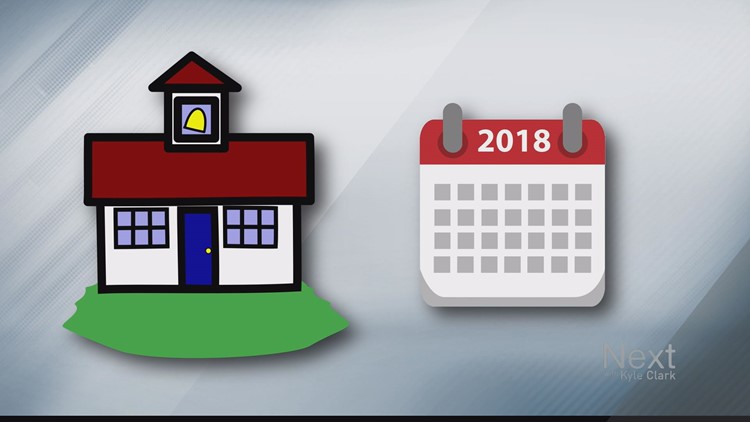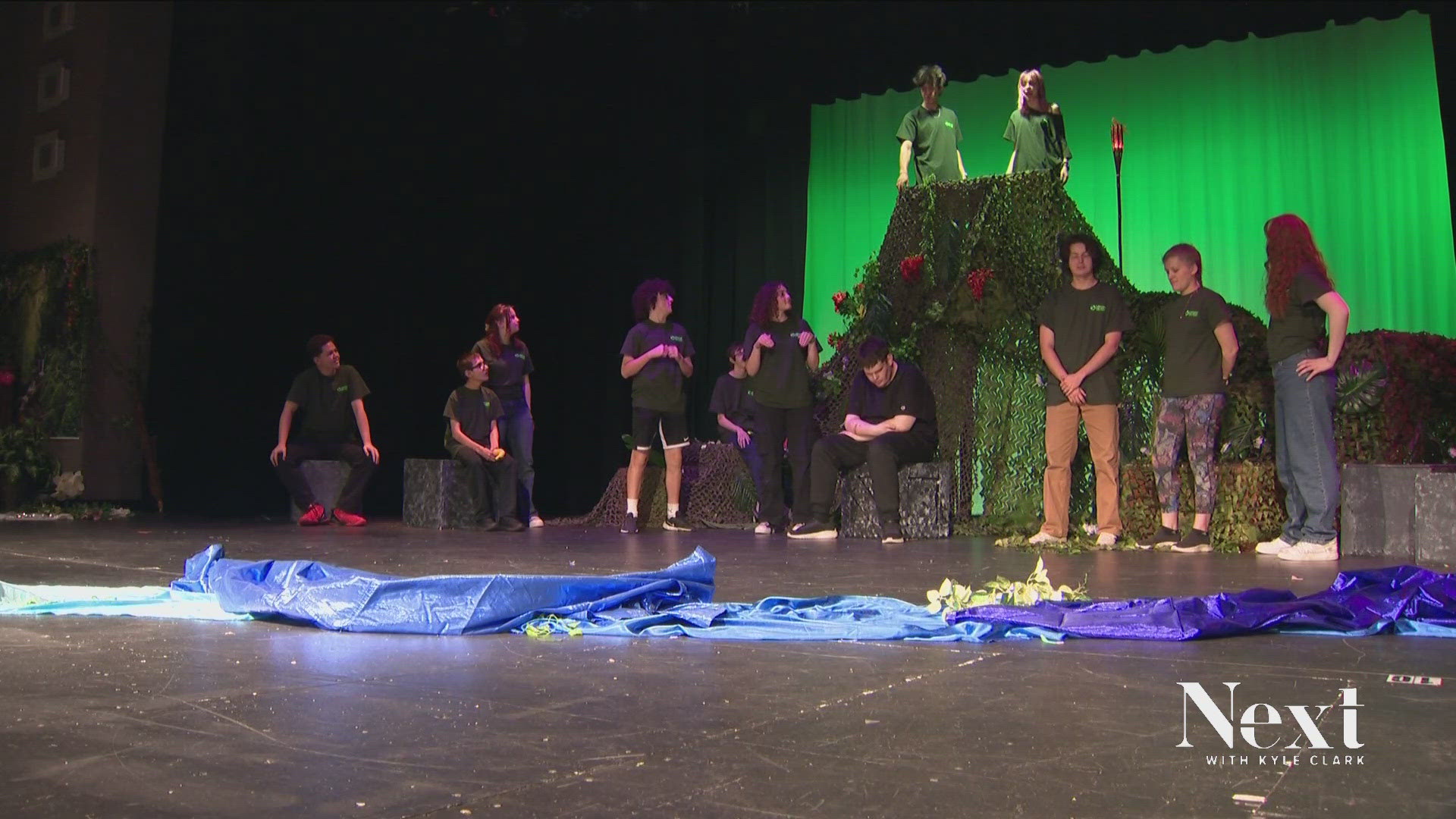DENVER — Teacher protests at the State Capitol on Thursday and Friday have led at least 19 school districts to cancel classes.
Based on how the calendar works at the state legislature, teachers may be a little late to class.
The decision to finalize the Department of Education budget for 2018-19 already happened. A source at the Governor's office said that the Gov. John Hickenlooper is set to sign the budget on Monday.
While most school calendars are August to May or June, the state legislative calendar runs July to June.
JULY
State departments, including the Department of Education, start preparing their budget requests for the next July. Think of this like planning how to pay for your next vacation or mapping out your family's budget one year ahead of time.
AUGUST
The Governor's Office receives the budget requests from the different departments and begins reviewing the details.
NOVEMBER 1
The Governor sends his budget, including the piggy banks for the Department of Education and other departments, to the Joint Budget Committee. The JBC is made up of six lawmakers that do the hardest work balancing the state's budget. This is when the discussions begin.
NOVEMBER/DECEMBER
The JBC asks questions to the executive directors of each department. There is no opportunity for public comment at these hearings. Unlike other committees at the Capitol, you can't show up and take a turn at the microphone, you have to request a time, and if approved, you only get 20 minutes on a Tuesday or Thursday night.
JANUARY
Legislative Session begins.
FEBRUARY
The JBC reviews the final budgets for each department, but takes no additional testimony.
LATE MARCH
The JBC finalizes the budgets for each department, puts them together in a piece of legislation called "The Long Bill," and introduces it into the House for the full legislature to debate.
MARCH/APRIL
The House sends "The Long Bill" to the House Appropriations Committee, the committee that monitors state spending. The public can attend this hearing and be part of public testimony. Once the House approves "The Long Bill," it gets sent to the Senate for the same process. The public can also speak at the Senate Appropriations Committee hearing. However, getting changes to the budget during this process is a tough task.
The problem with the timing of the teacher protests is that all those processes are done for the 2018-19 budget.
However, on Thursday, the Senate Education Committee will debate the Public School Finance Act. The public can speak at that hearing, but that legislation essentially allocates the money that has already been set aside in the Department of Education's 2018-19 piggy bank, it doesn't create new money.
The state's general fund covered $4.2 billion in education funding last year, with local property taxes providing $2.24 billion. A small amount also came from vehicle registration fees. That's the pot of money used to pay teachers, cover building costs, supplies and anything that needs to be paid to run a school. The state can help fill that piggy bank with more money, sometimes at the expense of another state department, it's the local school district that determines the salary of teachers.
And since I used the word "pot," you're probably wondering about pot money. Voters only approved the first $40 million of the 15 percent excise tax to be put in a school construction fund. Money collected above that cap is transferred to a public school fund, but it's a drop in the bucket. Voters did not approve pot money to be used on teacher salaries or other school expenses. However, state and local sales tax collected on pot sales go to the same buckets that state and local sales tax on any other purchase. And those buckets help fund school districts.



